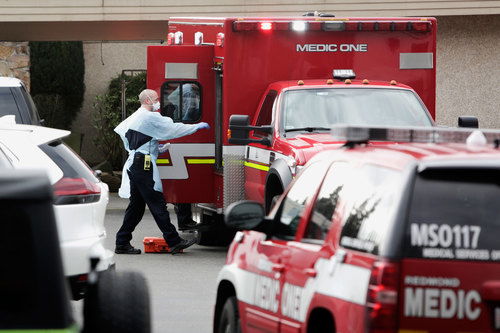Coronavirus death toll in U.S. climbs to 26; top health official predicts ‘many people’ will be exposed

WASHIGTON, DC -- Officials in the United States are reporting four more deaths of people infected with the novel coronavirus, bringing the total in the country to 26, most of them in Washington state.
Health officials in Washington on Monday reported three more coronavirus deaths, all residents of a Seattle-area nursing home that has been racked by COVID-19.
Washington state has now at least 22 deaths linked to the coronavirus. Authorities say 19 of those are associated with the Life Care Center of Kirkland.
In California, officials reported the second COVID-19 death in the state after a Santa Clara County woman in her 60s died Monday. The other two U.S. virus-related deaths took place in Florida.
The virus has now infected at least 600 people in the U.S. and a top official with the Centers for Disease Control and Prevention said Monday she expects “many people” will be exposed to the novel coronavirus.
“It’s fair to say that, as the trajectory of the outbreak continues, many people in the United States will at some point in time, either this year or next, be exposed to this virus. And there’s a good chance many will become sick,” Dr. Nancy Messonnier, director of CDC's National Center for Immunization and Respiratory Diseases, told reporters.
"But again, based on what we know about this virus, we do not expect most people to develop serious illness,” she added, citing figures from China suggesting roughly 80% of cases were mild.
However, Messonnier said that risk starts to increase beginning at age 60, with those over 80 at highest risk of serious illness from the virus.
"The people who are at greatest risk are those who are older, and who also have serious, long-term health conditions like diabetes, heart disease or lung disease,” she said.
In guidance released last week, the CDC encouraged those at higher risk to stock up on supplies, avoid crowds and “stay home as much as possible” if there’s an outbreak in your community. Still, Messonnier added Monday that there's no evidence of community transmission in most parts of the U.S.
"I would recommend that people make their own decisions based on an understanding of that risk,” she said.


